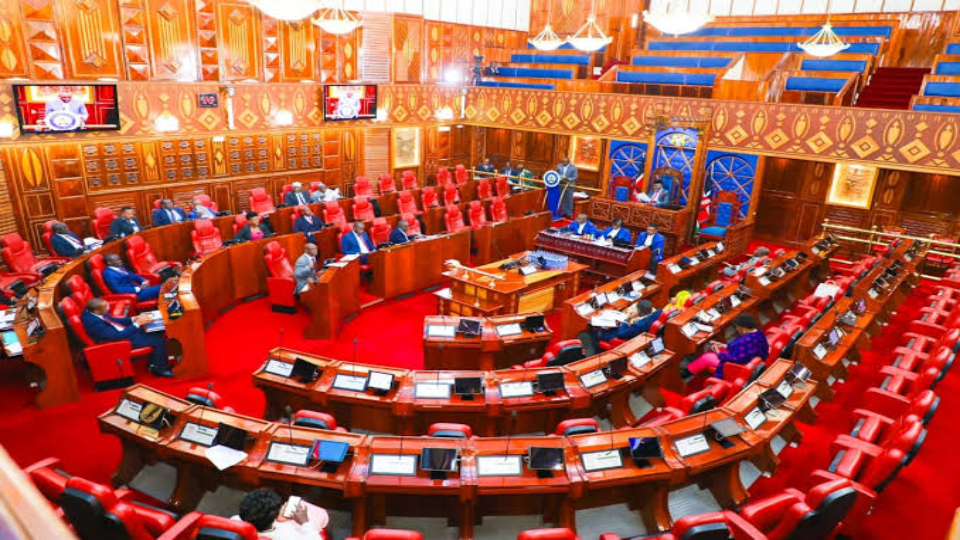Senate Gears Up for Intense Debates on County Reforms, Green Building Standards, and Farmer Safeguards as Sittings Resume
Nairobi - The Senate is set to dive back into legislative action today after a two-week recess, with a slate of critical bills poised for rigorous debate. The agenda spotlights reforms in county governance, the integration of climate resilience into construction practices, and mechanisms to ensure stable incomes for farmers. These proposals, if passed, could profoundly influence devolution, environmental policies, and agricultural livelihoods nationwide, marking a pivotal week for the upper house.
The resumption comes at a time when the Senate faces mounting pressure to address longstanding gaps in public accountability, sustainability challenges, and economic vulnerabilities in key sectors. Legislators will scrutinize these measures through committee reports, amendments, and floor discussions, aiming to balance innovation with practical implementation.
Leading the pack is the County Governments Laws (Amendment) Bill, sponsored by Garissa Senator Abdul Haji. This legislation targets inefficiencies in devolved units by enhancing oversight and operational efficiency. It introduces a decennial audit of county public service operations, designed to hold governors accountable even after their terms end. The bill amends the County Governments Act to mandate the clear publication of laws passed by county assemblies and requires governors to deliver an annual state-of-the-county address before their assemblies.
Further, it sets firm timelines for nominating and appointing county executive committee members and chief officers, alongside provisions for establishing new county public service boards following general elections. A key innovation is the county public service audit, which would enforce stricter performance tracking. Under current law, the absence of deadlines for these processes has caused prolonged vacancies in vital roles, hampering service delivery at the grassroots level. Haji emphasized the urgency, stating, "The Bill stipulates timelines for the nomination and appointment of county executive committee members and county chief officers, provides for the appointment of new county public service boards after a General Election, and introduces a county public service audit." He added that governors would face a statutory duty to nominate executive members within 14 days of swearing in, with assemblies obligated to approve or reject them in the same timeframe.
Complementing governance tweaks is the National Construction Authority (Amendment) Bill, tabled by Migori Senator Eddy Oketch. This measure seeks to weave environmental sustainability and climate adaptability into the heart of Kenya's booming construction industry, which drives infrastructure growth but also strains natural resources and faces escalating weather threats. The bill would grant the National Construction Authority expanded powers to champion and regulate eco-friendly materials, designs, standards, and methods across projects.
Oketch highlighted the dual-edged nature of the sector, noting, "The construction sector plays a crucial role in the development of Kenya's infrastructure and economy; however, it also significantly impacts the environment and is vulnerable to climate change risks." He stressed the imperative for change, saying, "There is a pressing need to integrate environmental sustainability and climate resilience into construction activities. The Bill proposes to empower the National Construction Authority to promote and enforce the use of environmentally sustainable construction materials, designs, standards, and practices."
On the agricultural front, the Agriculture Produce (Minimum Guaranteed Returns) Bill, proposed by Nominated Senator Veronica Maina, promises a safety net for farmers grappling with volatile markets and financing hurdles. Agriculture anchors Kenya's economy, accounting for over 20 percent of gross domestic product, 60 percent of export earnings, and roughly 45 percent of government revenue. It supplies the bulk of the nation's food needs and boasts indirect contributions nearing 27 percent of GDP via ties to manufacturing, distribution, and services. The sector sustains more than 40 percent of the total population and over 70 percent in rural areas, yet persistent issues like credit shortages and price fluctuations erode farmer incomes and stifle growth.
Maina underscored these stakes, declaring, "The sector contributes more than 20 percent of Kenya's Gross Domestic Product (GDP), 60 percent of export earnings and about 45 percent of government revenue, while providing most of Kenya's food requirements." She elaborated, "The sector is estimated to have a further indirect contribution of nearly 27 percent of GDP through linkages with manufacturing, distribution, and other service-related sectors, while employing more than 40 percent of Kenya's population and more than 70 percent of the rural population." Addressing core barriers, she observed, "Limited access to finance and market uncertainties remain major challenges affecting farmers' incomes. The sector faces many challenges that reduce its contribution to the economy and the improvement of livelihoods."
Another focal point is the County Attorney (Amendment) Bill from Bungoma Senator Wafula Wakoli, which fortifies the role of county legal advisors. By revising the Office of the County Attorney Act, it bolsters qualifications and establishes secure tenure for county attorneys and solicitors, ensuring they possess the depth of expertise needed to guide county governments effectively. Wakoli explained, "This Bill seeks to provide for the tenure of the Office of County Attorney, whose role is to advise the county government, since it is imperative for the holder to have vast experience related to the responsibilities bestowed on that office."
Rounding out the agenda, the Seeds and Plant Varieties (Amendment) Bill by Narok Senator Ledama ole Kina aims to accelerate seed innovation and quality control. It institutes a standards-driven registration framework through the Kenya Bureau of Standards, fast-tracking approvals for new varieties and elevating market standards. Kina pointed out, "The Bill will establish seed varieties eligible for registration by the Kenya Bureau of Standards, ensuring timely approval and improved quality of seeds in the market."
As debates unfold this week, stakeholders from county executives, environmental groups, builders' associations, and farming cooperatives are watching closely. The outcomes could redefine accountability in devolution, green up urban development, and stabilize rural economies, underscoring the Senate's role in fostering equitable progress. With the house back in session, expect spirited exchanges that could propel these bills toward enactment or refinement.


